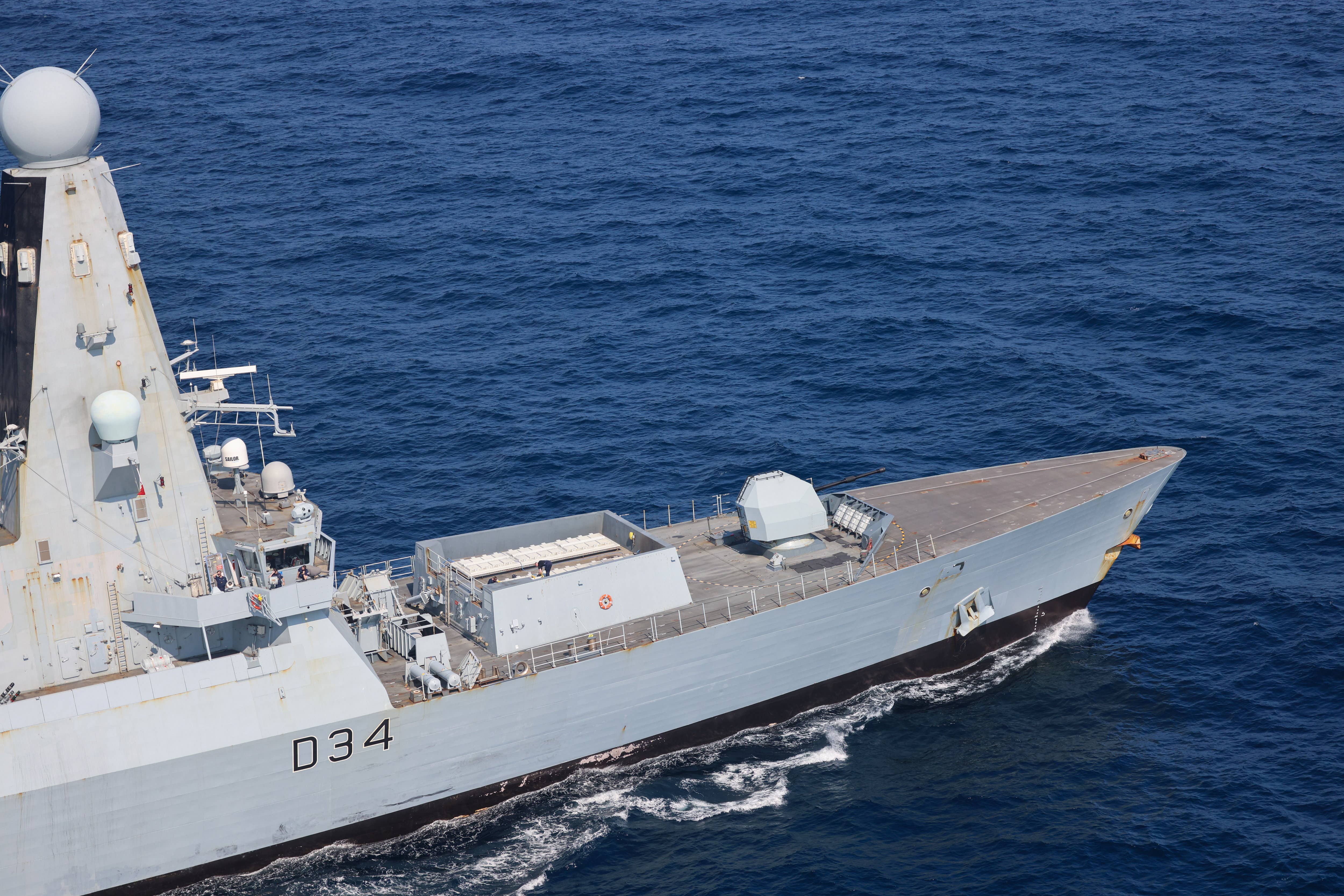Government fears UK economy could shrink in face of attacks on shipping in Red Sea
US and UK launch airstrikes against Houthis, which has targeted international cargo ships in Red Sea
Your support helps us to tell the story
From reproductive rights to climate change to Big Tech, The Independent is on the ground when the story is developing. Whether it's investigating the financials of Elon Musk's pro-Trump PAC or producing our latest documentary, 'The A Word', which shines a light on the American women fighting for reproductive rights, we know how important it is to parse out the facts from the messaging.
At such a critical moment in US history, we need reporters on the ground. Your donation allows us to keep sending journalists to speak to both sides of the story.
The Independent is trusted by Americans across the entire political spectrum. And unlike many other quality news outlets, we choose not to lock Americans out of our reporting and analysis with paywalls. We believe quality journalism should be available to everyone, paid for by those who can afford it.
Your support makes all the difference.The government fears the British economy could shrink in the face of ongoing attacks on shipping in the Red Sea.
On Thursday night, the US and the UK launched scores of airstrikes against targets linked to the Iran-backed Houthi rebel group in Yemen, which has targeted dozens of international cargo ships in the Red Sea, a major artery of world commerce, since the start of Israel’s war with Hamas in Gaza.
The Treasury has modelled scenarios, such as crude oil prices increasing by more than $10 a barrel and a 25 per cent rise in natural gas, amid concerns another energy shock is possible if the disruption to cargo traffic spreads to tanker traffic, the BBC understands.

It comes after the UK economy grew by more than expected in November, according to new figures. Gross domestic product (GDP) rose by 0.3 per cent in November, after declining by 0.3 per cent in October, according to the Office for National Statistics (ONS), as the prospect of the country entering a recession at the end of the year hangs in the balance.
However, the price of Brent crude, which is the international benchmark for oil prices, shot up by two per cent to $78.94 per barrel on Friday, while the cost of US West Texas crude rose by 2.1 per cent to $73.55.
A shipping giant boss described “significant disruption” to global trade that is already being felt “down to the end consumer”. Before the military strikes on Thursday, Maersk chief executive Vincent Clerc had urged a “stronger mobilisation” to repel the attacks to avoid higher prices for customers.
Around a quarter of the world’s shipping containers are currently being diverted from the area, with traffic forced to take a longer route around Africa’s Cape of Good Hope.
About 15 per cent of global seaborne trade passes through the Red Sea, according to the White House, including eight per cent of global grain, 12 per cent of seaborne oil, and eight per cent of the world’s liquified natural gas.
Tesla announced that it would be suspending most of its production at a Berlin factory as it faced a shortage of components following the Red Sea attacks. The US electric car maker said: “The armed conflicts in the Red Sea and the associated shifts in transport routes between Europe and Asia via the Cape of Good Hope are also having an impact on production in Gruenheide.”
Tesco boss Ken Murphy said earlier this week that the disruption “could inflate the cost of some items but we just don't know at the minute”.
Among the other businesses that have said they are expecting delays in receiving goods are Next, Ikea and Danone.
Mr Clerc told the BBC that the Red Sea is “one of the most important arteries of global trade”, adding that it will “probably take a few months more” to get back to normal, even if it is opened up again soon.

Join our commenting forum
Join thought-provoking conversations, follow other Independent readers and see their replies
Comments